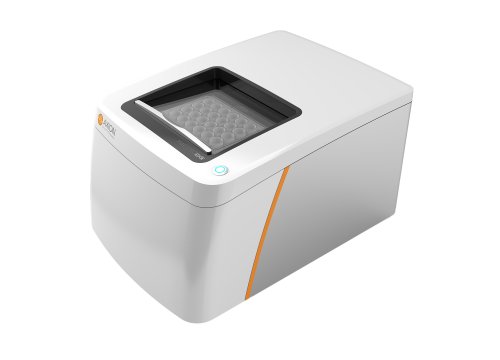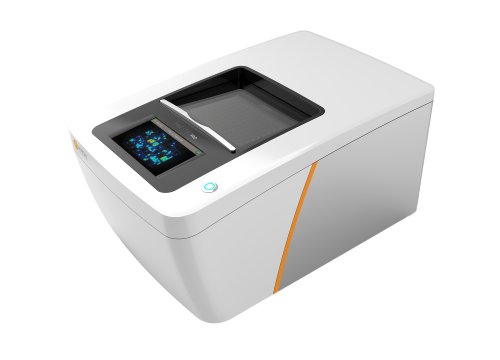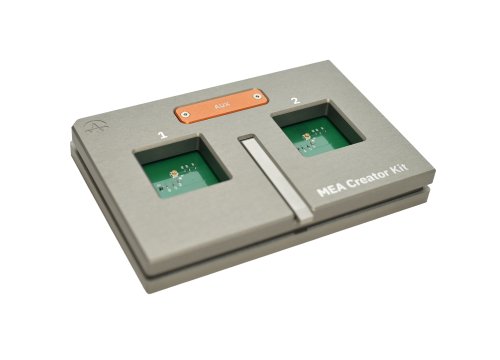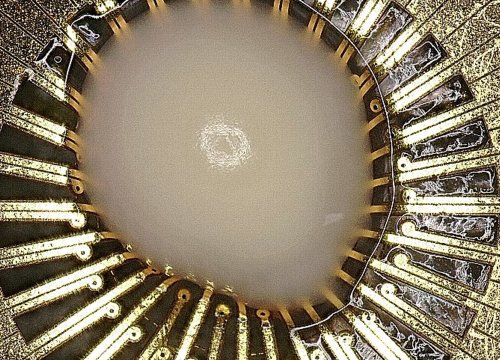Organoids are transforming research — but to unlock their full potential, you need more than structure. You need function.
Maestro MEA delivers label-free, real-time functional readouts from your 3D models — and now, with next-generation MEA plates designed specifically for organoids, you get unmatched sensitivity and reliability.
No matter what your research needs, Maestro gives you unprecedented access to the data that matters. Hear from Axion BioSystem's SVP of Marketing & Corporate Strategy, Mike Clements, PhD, about the recent innovations for the Maestro MEA Platform for organoid and 3D model research.
Transcript:
Organoids are transforming neuroscience, but to unlock their full potential you will need the right tools. Here, I'll discuss how Axion BioSystems is optimizing the Maestro MEA platform so your lab can seamlessly incorporate these new cell models into your research.
Neural organoids are three-dimensional, self-organizing, cellular models generated from human pluripotent stem cells (hPSC) or primary tissues. Because these advanced 3D models can recapitulate many features of the human brain in vitro, neuroscientists are increasingly relying on organoids to investigate neural development, disease modeling, and drug discovery. Unlike Maestro MEA, many assay tools on the market today were not designed for use with 3D cellular models.
Maestro MEA helps you go beyond traditional morphology and marker expression to recapitulate human biology and capture complex neural activity in vitro. With over 85 peer-review publications using Maestro MEA and organoids, our platform is trusted by researchers studying a wide range of neurological disorders including Alzheimer's, ALS, Autism, Epilepsy, Glioblastoma, and Parkinson's disease.
What is MEA technology? Multi-electrode arrays measure extracellular electrical activity. When excitable cells like neurons or cardiomyocytes are cultured on an MEA, microelectrodes embedded in the culture surface of the plate detect their firing in real time. Non-invasive measurements monitor activity for the entire culture. At Axion BioSystems, we're pushing the boundaries of what MEA technology can do. Designing tools specifically for the demands of 3D biology. To that aim, we've developed three specialized MEA plates:
- 1. SpheroHD for smaller neural organoids demanding high-density electrodes. Organoids aren't one-size-fits-all. To accommodate smaller organoids, i.e. approximately 200 micrometers in diameter, we've developed SpheroHD MEA, which features electrodes spaced just 50 micrometers apart. This ensures more recording sites per organoid to better map network activity in these smaller models.
- 2. SpheroGuide MEA Plate for consistent reliable organoid placement in a 48 well format. Positioning organoids can be a challenge. To make neural organoid recordings on Maestro MEA even easier, we've developed the SpheroGuide MEA plate. The well design funnels the organoid over the recording electrodes in the plate, enabling faster and more consistent loading of the plate.
- 3. 3DMap, our first MEA to feature flexible electrodes that wrap around your organoid to maximize contact across the surface without distorting its shape. 2D measurement tools weren't built for 3D models. No matter how many electrodes you have, you can only measure so much of a 3D sphere against a 2D plane. By integrating flexible electrodes, our innovative 3DMap can wrap around your organoid, allowing you to map activity across a larger area of the organoid surface.
These innovations expand Maestro's capabilities, enabling high-quality reproducible recordings across diverse organoid models.
The Maestro MEA doesn't have to work alone. Our Omni live-cell imager supports your entire organoid workflow from stem cell maintenance to organoid formation. It gives you whole-vessel imaging inside your incubator. So, you can monitor organoid growth and morphology without disrupting your cultures. When combined with Maestro MEA, the result is a complete integrated solution. generate organoids, monitor their development, and record their functional activity. All with Axion.
At Axion BioSystems, we're driving the future of organoid research. Maestro MEA is more than a system--it's a platform evolving to meet the complex needs of today's science. Join the researchers already using Maestro MEA to illuminate how organoids grow, function, and respond, and see how our advanced organoid tools can accelerate your research.
Visit axionbio.com to learn more.




